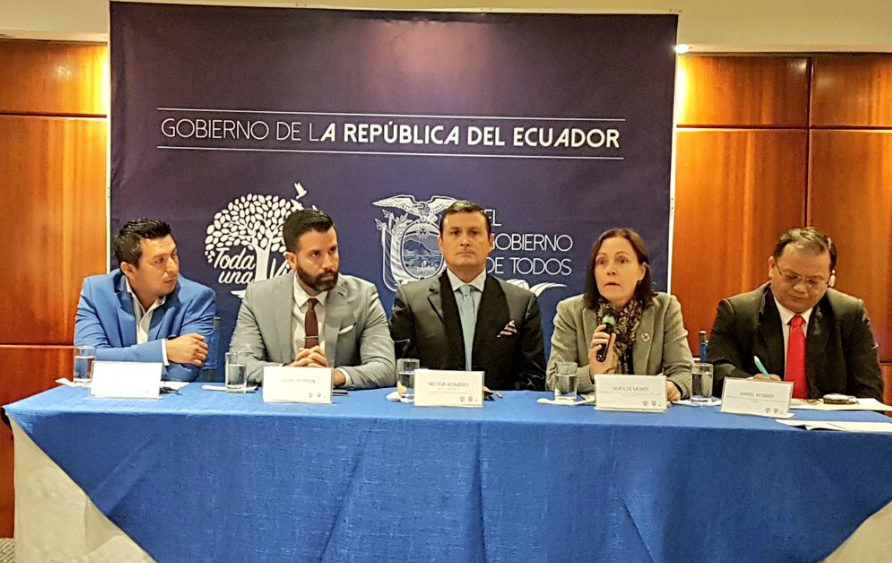With the participation of the Minister(s) of Agriculture and Livestock (MAG), Héctor Romero, the Jurisdictional Sustainable Palm Oil Certification was Launched in the Ecuadorian Amazon; the project was led by MAG together with the Ministry of Environment, PROAmazonía and the United Nations Development Program (UNDP).
Date: September 27, 2019
Quito, September 27, 2019.– With the participation of the Minister(s) of Agriculture and Livestock (MAG), Héctor Romero, the Jurisdictional Sustainable Palm Oil Certification was Launched in the Ecuadorian Amazon; the project was led by MAG together with the Ministry of Environment, PROAmazonía and the United Nations Development Program (UNDP).
The main objective is to position Ecuador as a world pioneer in the jurisdictional certification of sustainable palm oil, which consists of adopting environmentally and socially friendly practices to help eradicate deforestation in the palm oil production chain.
The event was attended by Matilde Mordt, Resident Representative of the United Nations Development Program (UNDP); Darrel Webber, Executive Director of the Roundtable on Sustainable Palm Oil Worldwide; Steven Petersen, Undersecretary for Climate Change at the Ministry of Environment (MAE); Geovany Ureña, Amazon palm producer, representatives of the industrial sector, producers; members of the palm oil chain and civil society.
Hector Romero said that «since 2014, MAG has coordinated actions with the Ministry of Environment and the Ministry of Production, Foreign Trade, Investments and Fisheries to consolidate a Competitive Improvement Plan (PMC), which today is becoming the Interinstitutional Monitoring Committee, a multisectoral space that outlines actions and strategies to move towards sustainable palm oil production for the country.
Geovany Ureña, Amazon palm producer said “as palm growers we get involved in sustainable management and respect for the environment through the implementation of the RSPO certification, because it is in our interest to conserve the planet, and produce with high quality standards.”
[[SUBTITLE]]
Ecuador has 257,121 hectares of palm grown by 6,568 producers; 91% are small, and around 70% operate on farms of less than 20 hectares and apply family-style agriculture.
Steven Petersen, Undersecretary for Climate Change at the Ministry of Environment noted “our country’s main goal is to achieve 0% deforestation in sustainable palm production. Ecuador already has a regulatory framework that will allow us to advance more quickly and be productive on environmental quality issues.”
Matilde Mordt, UNDP resident representative, said “we congratulate the Inter-Institutional Committee on Palm Oil and, in particular, the Government of Ecuador, which, through the Ministry of Agriculture and Livestock and the Ministry of Environment are joining this effort to advance towards the certification of sustainable palm that will lay the foundation for production to follow international guidelines while respecting the environment.”
The certification will allow Ecuador to access new markets for exporting palm oil to European countries.
 Español
Español English
English
